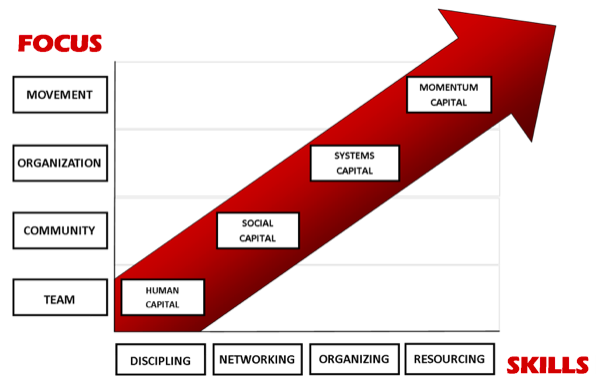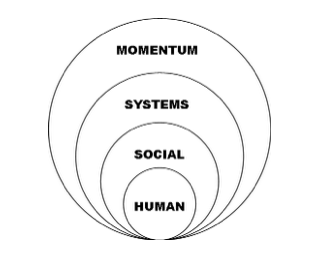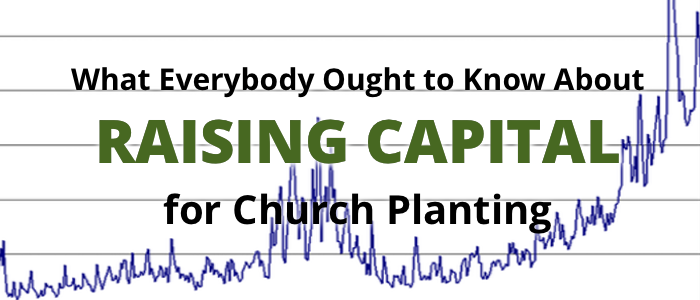We can learn a lot about the task of church planting by looking at some of the metaphors Paul uses to describe the nature of his ministry as an apostle. One of his favorite metaphors appears to be steward (I Cor. 4:1-2; 9:17, Eph. 3:2, Col. 1:25.) Pardon the geek moment here, but in order to appreciate this metaphor, we have to go to the original language and historical context.
Language and Background of Stewardship
Language first. In I Corinthians 4:2 Paul uses the word oikonomos, which is the verb form of the noun oikonomia. This word oikonomia is actually where we get our word economy from. As such it carries with it notions of value, exchange, resources and capital.
Now for some historical and cultural background. In the first century Greco-Roman world, an oikonomos was in charge of stewarding the resources of a master or householder. This not only meant stewarding tangible things like money and property, it also meant stewarding intangible things like the name and reputation of the master among influential people and commercial settings. They were custodians of another person’s assets. In contemporary terms, the steward (oikonomos) was an economist of sorts. They helped steward the various forms of capital of that belonged to another person.
So what does this have to do with church planting? Well, built into this understanding of the apostle as an economist of the gospel is the notion of stewarding resources (the gospel included) that will enable the gospel to flourish and maintain its viability. The gospel is a dynamic force intended to flow into, and flourish within, every sphere of culture and society, giving birth to transformation and renewal. In essence, the gospel is movemental at its core.
If this is true, then to be a steward of the gospel means not only to steward the core message of the gospel, it also means stewarding the various forms of capital that allow the gospel to fulfills its dynamic, movemental viability in the “marketplace” of culture and society. (Romans 15:19).
In other words, being a steward the gospel implies being a steward of other forms of capital which allow the gospel to fulfill its intended purpose of transformation and renewal.
In this vein, I want to suggest four kinds of capital that need to be stewarded in order for the gospel fulfill its movemental purposes. In order of importance, they would be: human, social, systems, and momentum.
Because each one of these four capitals is different from each other, they each require a different focus and skill set to develop. It would look something like this:

If we think of this from the standpoint of laying foundations for movements to take place, each form of capital funds the development of the next kind of capital. So starting at the ground level, human capital helps cultivate social capital, which then creates the need for developing systems capital, which in turn opens up the potential for sustainable momentum to emerge.
Let’s take a quick look at each form of capital and its corresponding focus and skill set.
Human Capital
Human capital is the collection of skills, knowledge, virtues, or other intangible assets of individuals that has the potential to create value for other people and their community.
This is the most foundational form of capital, which means it resources and supplies the necessary funding for the emergence and development of all the other forms of capital. For example, if you focus a lot of time and energy on meeting new people and inviting them to form a new community (networking to build social capital), but ignore the foundational task of discipling and team formation, that newly formed community will face a significant dilemma. Accruing too much social capital on the front end without a proportionate amount of human capital to support and steward the social capital that emerges in the new community will either lead to burnout of the planter(s) and their families, or the size of the community will eventually scale down to a size proportionate to the available human capital.
Without a well developed team who can in turn make disciples of new people, the movement will stall out. The skills of disciple making and the task of team formation is absolutely foundational to the sustainability of any movement.
Social Capital
If economic capital is located in the bank and human capital is located within the individual, social capital exists in the space between us.
In short, social capital represents both the quantity and quality of social connections you have. These relational connections can be with individuals, networks or organizations. The value of social capital is that it provides the relational connections by which the gospel can travel.
In your efforts to generate social capital it is helpful to keep in mind the importance of the fivefold ministry of APEST in Ephesians 4:11-16. Evangelists have a natural tendency to develop what Granovetter has dubbed as “weak ties.” They typically establish lots of relational connections as they never meet a stranger. However, these connections will likely be touch and go. There will not be much depth or continuity to them.
The point here is that no one is going to be good at cultivating every form of capital on their own. It requires a team approach that reflects at least a fivefold understanding of ministry and leadership. The primary skill in building social capital is networking. And while networking is a skill that can be learned by anyone, its always helpful if there is someone with a primary or secondary gifting of an apostle or evangelist to equip others in learning that skill.
It is the task of the church planter to not only facilitate opportunities for equipping in these areas, but also to to develop a rule and rhythm of life that leads people to enter into new or existing environments where relationships can be built and community can form.
Systems Capital
A system forms when separate parts join together to function as a whole to achieve a certain goal.
Take the human body for example. While we all have 13 major organs that are separate and distinct from each other, they each interact and work together to sustain life and vitality. Systems help channel energy and resources between the parts of a whole so that no one part is either excluded or exceeds its capacity. Without systems the whole begins to disintegrate and the parts either become dysfunctional or die.
Depending on how you are wired, this idea of creating systems is either attractive or repelling. One of the important things to remember as a planter is that you do not want to clone your community after your own preferences. If you prefer less structure in your own personal life, this does not mean the newly formed community should be a mirror of your own personal preferences. Every living thing needs systems. What if your heart suddenly decided “I don’t like systems. I think they are annoying and downright stifling. I refuse to consistently interact with the other 12 major organs in a routine way.” Needless to say, dysfunction and even death is just around the corner. Ignoring systems comes with a price.
The skill needed for developing systems is organization. Yet organization is a matter of degree, so the question is not whether we need to organize. The real question is to what degree and to what end? As someone who is personally allergic to structure and routine, one of the metaphors that has helped me grasp the importance of developing systems and organizational structure in church planting is that of the lattice. A lattice is used in gardening to support the growth of new plants. It is a tool that helps support life. It ensures the plant is able to keep growing and ultimately maintains its capacity to yield a harvest.
Like it or not, creating systems for effective communication, decision making and operational efficiency are absolutely essential to the apostolic task of church planting. We see Paul doing this, in part, by establishing practices that are purely pragmatic in nature, like a weekly collection of money ( I Cor. 16:1-2).
Momentum Capital
At this phase of development it is the task of leadership to resource the movement with content, coaching and conferences.
This is exactly what we see Paul doing through in his own apostolic ministry. He writes letters of instruction (content), send leaders to train (coaching), and creates awareness within the network of churches about certain churches who exemplify best practices (a primitive form of conferencing 2 Cor. 8:1-7). Bringing the movement together periodically for strategic training and storytelling in and of itself will catalyze and propel the movement forward.
While momentum can undoubtedly surface at every phase of a movement, sustainable momentum, to a large degree, is funded by the more foundational forms of human, social and systems capital. It is the systemic interaction between these three forms of capital that that creates the foundation for sustainable momentum to take place within the movement.
In one sense, these four capitals are somewhat of a system in and of themselves. They synergize and feed into one another. While each form of capital is indispensable for a movement, by themselves they are insufficient. So in one sense, these forms of capital have a linear dimension. In another sense, they are more like a nested hierarchy where each layer is carried forward and included in the next. It would look something like this:

Strategic emphasis will always shift. Developing each form of capital requires a different focus and skill. The job of church planter can be described as cultivating the human, social, systemic, and momentum capital at every level of the movement.
Registration is open. Sign up for a V3 Learning Cohort today!
Did you find this article helpful? Click these links to share it on Facebook, Twitter and Linkedin.
Share this Post

